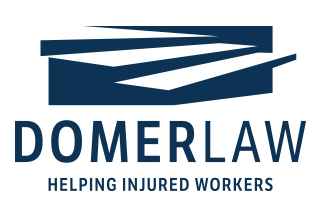Workplace injuries are difficult for most families when their primary financial providers are incapacitated and unable to continue working while they recover. However, in some of the most tragic situations, the injuries sustained at work may be deadly, and the worker’s family has no recourse for future earnings to support themselves. In these types of situations, workers’ families may be able to obtain death benefits through the Wisconsin workers’ compensation system.
Under this system, there are a number of types of benefits that are available to the families of workers who died due to a work accident or occupational injury. Unfortunately, not all family members qualify for a dependent death benefit, and it remains helpful to review the law or consult with a lawyer about the available benefits. Also, since workers’ compensation is an insurance system–and not personal injury–there are strict limits on the potential value for a death benefit claim.
Funeral and burial expenses
In any situation where a worker dies from an injury sustained at work, their funeral expenses will be covered by either their employer or their insurance company. This will cover funeral and burial costs up to $10,000.
Benefits to the Surviving Spouse
If the worker was married when they passed away due to a workplace injury, then their surviving spouse can receive benefits to continue supporting themselves. These benefits are normally equal to four times the maximum annual earnings that the worker was receiving at the time of the injury. (4x the worker’s annual wage). The benefit to the surviving spouse is paid out over time, not in a lump sum.
Benefits to Dependent Children
If there is no surviving spouse, dependent children under the age of 18 can bring a claim for the dependent death benefit (at four times the annual wage). If there are multiple dependent children, the death benefit can be divided between the children for their benefit. The money for these claims is generally placed in an account that a guardian controls.
Also, if there is a surviving spouse receiving the death benefit, there can be additional benefits for any dependent children who was under the age of 18 at the time that the worker passed away. These extra benefits can also be payable if the dependent child was over the age of 18 if they were physically or mentally incapacitated or disabled. These benefits (known as childrens fund benefits) will vary based on the age of the child when their parent passes away, with a greater amount of benefits being paid to younger children.
Other Family Benefits
If the worker who passed away did not have a spouse or dependent children, then there may be other family members who can qualify for death benefits. These other family member would need to show partial dependency–meaning they were dependent on the deceased for financial needs. For example, if the worker had been supporting their parents financially, then their parents could be entitled to death benefits. These benefits generally only apply if the worker paid more than $500 to support their parents in the year that the worker died. The partial dependency benefit is limited to twice a deceased worker’s annual earnings.
Additionally, if the parents were not financially dependent on their child when they passed, then they are still provided $6,500, so long as they were on friendly terms with them. Other family members may also qualify for death benefits, depending on the exact situation of the worker.
State Fund Payments
If there are no dependents of the injured worker who passed away, the entire dependent death benefit is payable to a State Fund. Accordingly, if there is a family member claiming partial dependency, they may end up in a dispute with the State Fund over who is eligible for the benefits. Consultation with an attorney is needed in these situations.
Scholarships
While not part of the Wisconsin worker’s compensation law, children of an injured worker who passed away can be eligible for college scholarships through a Wisconsin non-profit organization: Kids Chance of Wisconsin.


